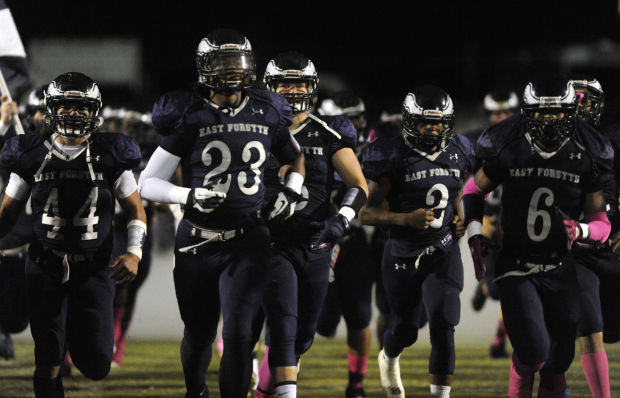
High school football practices started last Saturday, and temperatures have been in the nineties every day since (with the exception of today).
With such high temperatures, players, coaches and parents have had to take extra precautions in preparation for practice.
“This summer probably has been the hottest in the 12 years that I’ve been involved,” said Jennifer Smith, athletic trainer at East Forsyth High School.
East Forsyth High has had to delay their practices until after 6 in the evening, when the temperatures dropped to a safe level.
“When you’re talking about kids being outside and playing in 90 above weather, it’s just too dangerous,” Smith said.
By measuring the temperature and humidity, Smith is able to determine when and where it is safe to practice. Usually, they will begin practice without pads or helmets and do drills in the shade.
“Normally your body, when it gets hot, manages that heat by moving your blood out into your skin, where your skin radiates it away,” said Dr. Casey Glass, assistant professor of emergency medicine at Wake Forest Baptist Medical Center.
With helmets and pads on, it makes it harder for the heat to escape the body.
“The helmet is essentially an incubator for their head,” Smith said. Symptoms of heat exhaustion or heat-related illnesses can strike in minutes.
“Headaches, dizzy, cramping, sick to their stomach, feel like they’re [going to] throw up,” Smith said.
Cramps are also a sign that an athlete may be overheating. Athletes can suffer muscle and organ damage as a result.
“In the worst cases they would suffer brain injuries, fortunately, those are pretty rare,” Dr. Glass said.
Proper hydration and nutrition are key, experts say, especially during the summer months. Many times, they say, athletes do not properly prepare their bodies while unsupervised.
“If they were at school, they’re more likely to make sure that they’re eating breakfast and lunch and then coming out to practice,” Smith said.
Symptoms may not appear until after an athlete completes practice.
“Your student should still be able to finish their dinner, do evening activities. They’ll need to rest, but they shouldn’t have nausea and vomiting, confusion or other symptoms,” Dr. Glass said.
If your child is experiencing symptoms of heat-related illness, you should contact emergency responders or a health care professional immediately.
“We do things like ice packs, or cooling blankets, in an effort to bring their temperature down pretty quickly,” Dr. Glass said.
Symptoms can also carry over from day to day. By not sitting out practices while experiencing symptoms, they may become worse.
“If they have confusion or other problems, they really should be out of practice for a week,” Dr. Glass said.
ORIGINAL ARTICLE:
Experts weigh in on dangers of practicing in the heat